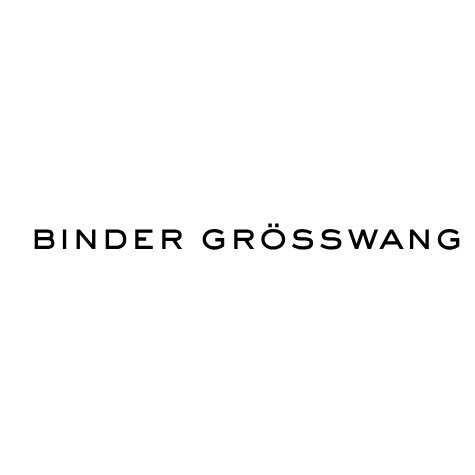Best ADR Mediation & Arbitration Lawyers in Innsbruck
Share your needs with us, get contacted by law firms.
Free. Takes 2 min.
List of the best lawyers in Innsbruck, Austria
About ADR Mediation & Arbitration Law in Innsbruck, Austria
Alternative Dispute Resolution (ADR) comprises mechanisms such as mediation and arbitration, designed to resolve conflicts outside of traditional court proceedings. In Innsbruck, Austria, ADR is becoming an increasingly popular method for resolving disputes efficiently and amicably. Mediation involves a neutral third party facilitating negotiations between disputing parties to help them reach a mutual agreement. Arbitration, on the other hand, appoints an arbitrator or arbitration panel to make a binding decision on the dispute. These mechanisms are widely accessible, cost-effective, and less time-consuming compared to litigation.
Why You May Need a Lawyer
There are various scenarios where you might need legal assistance in ADR mediation and arbitration:
- Complex commercial disputes that require specialized knowledge.
- Labor and employment disagreements where impartiality is crucial.
- Family and matrimonial disputes needing sensitive handling.
- International trade disputes subject to multiple jurisdictions.
- Instances where a binding resolution is preferable to a prolonged court case.
- Situations involving complicated legal or procedural issues.
- If you need guidance on the enforceability of arbitration awards.
- To ensure compliance with local and international regulations.
- When negotiating or drafting arbitration agreements.
- If immediate resolution is crucial, such as in urgent commercial disputes.
Local Laws Overview
Key aspects of ADR mediation and arbitration laws in Innsbruck, Austria include:
- Arbitration proceedings are governed by the Austrian Code of Civil Procedure (Zivilprozessordnung - ZPO).
- Austria is a signatory to the New York Convention, ensuring international enforceability of arbitration awards.
- Mediation is governed by the Austrian Civil Law Mediation Act, which provides guidelines for the mediation process.
- Austrian law allows the choice of language and venue for arbitration and mediation proceedings.
- Parties are free to select their own arbitrators or mediators, either independently or via arbitration institutions.
- Confidentiality is a cornerstone, with both mediation and arbitration proceedings protected by strict confidentiality rules.
- Provisions ensure that arbitration awards are not only final but also carry the same weight as court judgments once rendered.
- Interim measures and conservatory measures can be sought to protect assets or evidence during arbitration.
Frequently Asked Questions
1. What is the difference between mediation and arbitration?
Mediation involves a neutral third party assisting in negotiations to help parties reach a mutual agreement, while arbitration involves a binding decision from an arbitrator or arbitration panel.
2. Is ADR legally binding in Austria?
Mediation agreements are not automatically binding but can be made so through a court order. Arbitration awards, however, are binding and enforceable as court judgments.
3. Can arbitrators’ decisions be appealed in court?
Generally, arbitration awards are final and not subject to appeal, but they can be challenged on limited grounds such as procedural irregularities or lack of impartiality.
4. How are mediators and arbitrators selected?
Parties can mutually agree on mediators and arbitrators or appoint them through arbitration institutions.
5. What types of disputes can be resolved through ADR?
ADR can be used for a wide range of disputes including commercial, employment, family, and international trade disputes.
6. Are ADR proceedings confidential?
Yes, both mediation and arbitration proceedings are typically confidential, protecting the sensitive information disclosed during the process.
7. How long does the ADR process usually take?
The duration varies but ADR is generally faster than litigation, with mediation often resolving disputes in a few sessions and arbitration taking several months.
8. What costs are associated with ADR?
Costs include fees for the mediator or arbitrator, administrative expenses, and possible legal fees, which are usually lower than court litigation costs.
9. Can ADR be used for international disputes?
Yes, especially arbitration, which is supported by international treaties such as the New York Convention, ensuring enforceability across borders.
10. What happens if one party refuses to participate in ADR?
If one party refuses to participate, mediation cannot proceed as it relies on mutual consent. However, binding arbitration can proceed even if one party is non-cooperative, provided there was an initial agreement to arbitrate.
Additional Resources
For more information, you might find the following resources useful:
- Austrian Bar Association (Österreichischer Rechtsanwaltskammertag) - Legal professionals directory, guidelines, and support.
- International Chamber of Commerce (ICC) Austria - Information on international arbitration.
- Austrian Arbitration Association - Promoting arbitration and providing resources and support.
- Federal Ministry of Justice - Governmental guidelines and regulations on ADR.
- Vienna International Arbitral Centre (VIAC) - Resources and support for arbitration proceedings in Austria.
Next Steps
If you need legal assistance in the field of ADR mediation and arbitration, consider the following steps:
- Identify the nature of your dispute and decide whether mediation or arbitration is suitable.
- Consult with a legal professional who specializes in ADR to get tailored advice.
- Gather all relevant documents and evidence related to your dispute.
- Reach out to recognized ADR institutions for support and resources.
- If you decide to proceed with arbitration, draft or review your arbitration agreement with the help of a lawyer.
- Ensure clear communication and consent between all parties involved in the ADR process.
- Attend all mediation or arbitration sessions punctually and prepared.
- Seek interim measures if necessary to protect your interests during the ADR process.
Lawzana helps you find the best lawyers and law firms in Innsbruck through a curated and pre-screened list of qualified legal professionals. Our platform offers rankings and detailed profiles of attorneys and law firms, allowing you to compare based on practice areas, including ADR Mediation & Arbitration , experience, and client feedback.
Each profile includes a description of the firm's areas of practice, client reviews, team members and partners, year of establishment, spoken languages, office locations, contact information, social media presence, and any published articles or resources. Most firms on our platform speak English and are experienced in both local and international legal matters.
Get a quote from top-rated law firms in Innsbruck, Austria — quickly, securely, and without unnecessary hassle.
Disclaimer:
The information provided on this page is for general informational purposes only and does not constitute legal advice. While we strive to ensure the accuracy and relevance of the content, legal information may change over time, and interpretations of the law can vary. You should always consult with a qualified legal professional for advice specific to your situation.
We disclaim all liability for actions taken or not taken based on the content of this page. If you believe any information is incorrect or outdated, please contact us, and we will review and update it where appropriate.















